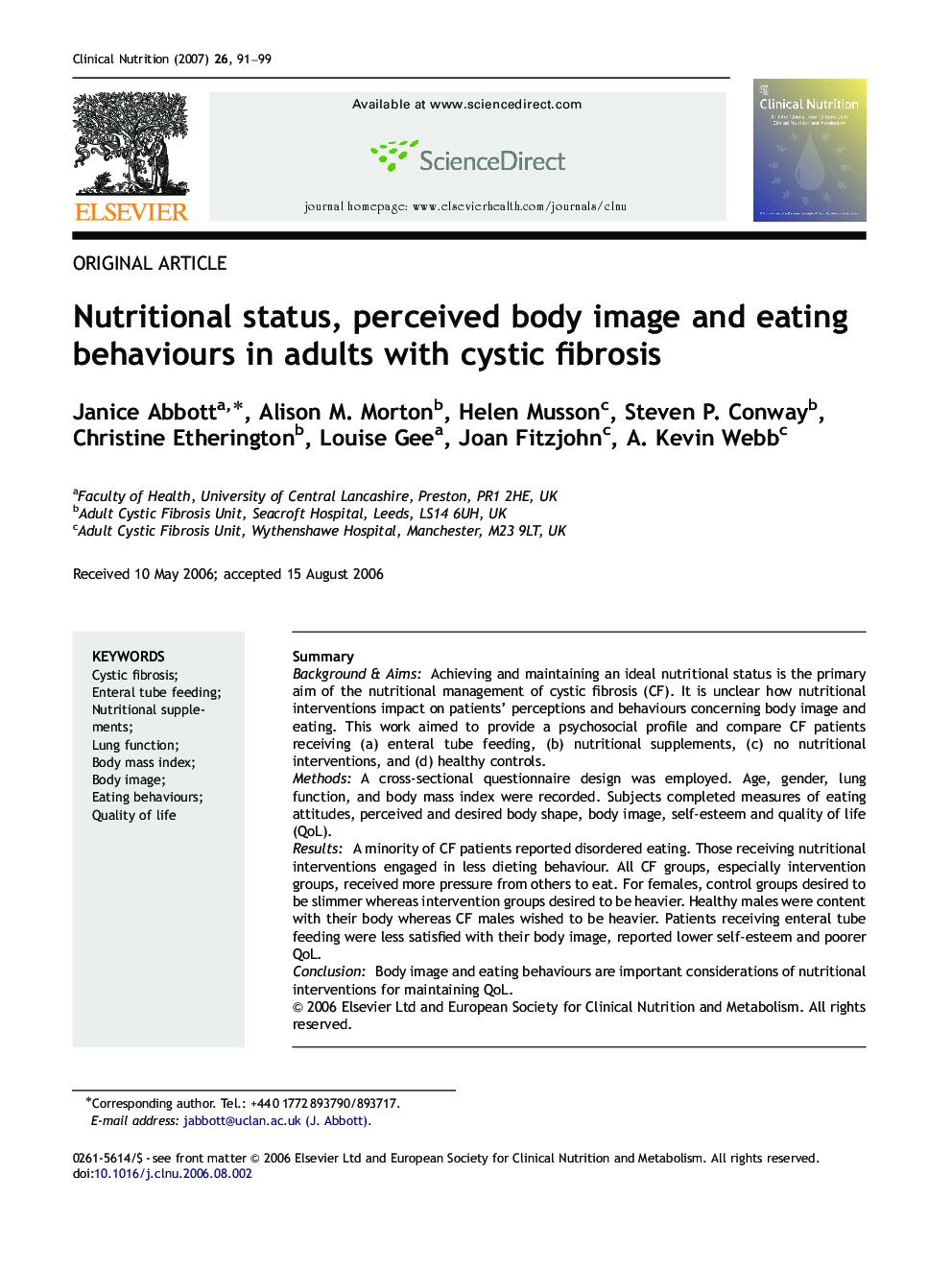| Article ID | Journal | Published Year | Pages | File Type |
|---|---|---|---|---|
| 2684486 | Clinical Nutrition | 2007 | 9 Pages |
SummaryBackground & AimsAchieving and maintaining an ideal nutritional status is the primary aim of the nutritional management of cystic fibrosis (CF). It is unclear how nutritional interventions impact on patients’ perceptions and behaviours concerning body image and eating. This work aimed to provide a psychosocial profile and compare CF patients receiving (a) enteral tube feeding, (b) nutritional supplements, (c) no nutritional interventions, and (d) healthy controls.MethodsA cross-sectional questionnaire design was employed. Age, gender, lung function, and body mass index were recorded. Subjects completed measures of eating attitudes, perceived and desired body shape, body image, self-esteem and quality of life (QoL).ResultsA minority of CF patients reported disordered eating. Those receiving nutritional interventions engaged in less dieting behaviour. All CF groups, especially intervention groups, received more pressure from others to eat. For females, control groups desired to be slimmer whereas intervention groups desired to be heavier. Healthy males were content with their body whereas CF males wished to be heavier. Patients receiving enteral tube feeding were less satisfied with their body image, reported lower self-esteem and poorer QoL.ConclusionBody image and eating behaviours are important considerations of nutritional interventions for maintaining QoL.
